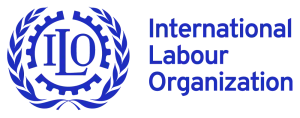
Training toolkit on the European Union and Member States’ competences in the field of migration and asylum of non-EU nationals
Training toolkit on the European Union and Member States’ competences in the field of migration and asylum of non-EU nationals

Introduction
The EU constitutes an area of freedom, security and justice. The development of common European policies on international protection, visas and migration policies for non-EU citizens and the management of external borders are necessary components of it. In addition, the border-free Schengen Area guarantees free movement to more than 400 million EU citizens, along with non-EU nationals living in the EU or visiting the EU as tourists, exchange students or for business purposes (anyone legally present in the EU). Free movement of persons enables every EU citizen to travel, work and live in an EU country without special formalities. Schengen underpins this freedom by enabling citizens to move around the Schengen Area without being subject to border checks.
All these policy areas have developed considerably since the Treaty of Lisbon signed in 2007. As European integration is still ongoing in the policy area affecting migration, the division of competences between the EU and its Member States remains complex and is constantly shifting.
The course will provide an overview about the European Union and Member States’ competences in the field of migration and asylum of non-EU nationals. It will cover both short and long-term regular migration, as well as international protection and irregular immigration. For each of these areas, the course will consider the state of internal EU integration and the division of competences between the EU and its Member States. It will furthermore examine the relevant external activities of the EU and its Member States in the field.
LEARN ONLINE
This toolkit can be completed at your own pace
SPECIALIZED CONTENT
This toolkit blends theoretical knowledge on the European Union and Member States’ competences in the field of migration and asylum of non-EU nationals
DOWNLOADABLE
The contents are also available in an easy to download version
Who is this for?
In 2016, the EU, participating Member States and the Government of India agreed to establish a Common Agenda for Migration and Mobility (CAMM) to strengthen dialogue and cooperation in the area of migration. This CAMM framework includes four priority areas:
- organizing and promoting regular migration,
- preventing and combating irregular migration,
- maximising the development impact of migration and
- promoting international protection.
It is in this framework that this toolkit was developed and it is now offered. The target audience is Indian officials, policy makers, influencers, researchers and others, who work in the area of migration and mobility.
What will I learn?
The toolkit is composed of 5 modules, covering the following themes:
- Module 1: INTRODUCTION TO THE EU POLICIES ON MIGRATION AND ASYLUM
- Module 2: EU POLICY ON VISA AND LEGAL MIGRATION
- Module 3: EU POLICY ON IRREGULAR MIGRATION
- Module 4: INTERNATIONAL PROTECTION
- Module 5: THE EXTERNAL DIMENSION OF THE EU POLICY ON MIGRATION AND ASYLUM
What will I be able to do?
After completing the different modules of the toolkit, you will be able to:
- Gain an overview on the legal acts adopted at EU level in the field of migration and asylum of non-EU nationals.
- Recognize the external dimension of the EU policies on migration and asylum and its relevance for non-EU countries.
- Understand how the legal competences are distributed between the EU and the EU Member States in the field of migration and asylum.
- Realize in which cases the EU is the right interlocutor when it comes to migration and asylum in Europe.
How is the toolkit organized?
The toolkit has been designed with a modular approach in order to offer a flexible and comprehensive tool for users and participants interested in learning more on the European Union and Member States’ competences in the field of migration and asylum of non-EU nationals
The " Training toolkit on the European Union and Member States’ competences in the field of migration and asylum of non-EU nationals" is composed of 5 modules.
- 1 Core Module (Introductory module): this module is the ideal starting point of this learning journey; we encourage you to start from here.
- 4 Optional Modules, organized by themes: each these modules addresses a different theme, analysing it in depth and from a variety of different angles. Modules can be completed jointly or separately depending on your needs, for a learning journey that is truly tailor-made.
Want to join?
This free toolkit is available on eCampus, the ITCILO's online learning platform. Upon completion of the toolkit, a certificate of completion will be automatically delivered.
Project implementing partners

Toolkit developed by

